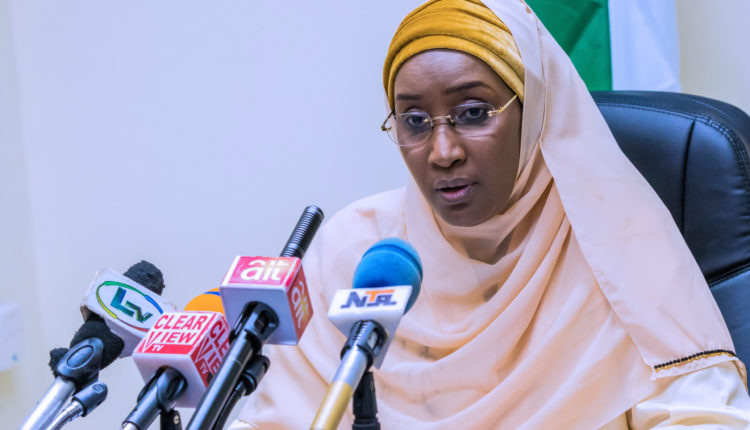Abuja – Hajiya Sadiya Umar Farouk, Minister of Humanitarian Services, Disaster Management and Social Development, has described those who perceive the N5,000 monthly cash transfer of the Federal Government as insufficient as talking from an elitist point of view.
She said to poor Nigerians N5,000 means a lot to them. Her reaction came in response to questions directed at her from State House correspondents, asking if she truly believes with the harsh economic realities on ground N5000 can bail any poor Nigerian out of extreme poverty.
According to her, the commitment of President Muhammadu Buhari to lift 100 million Nigerians out of poverty has impacted over 1.6 million lives through the various intervention schemes, but that the benefit goes beyond cash, rather it was providing skills for life support for the beneficiaries.
The minister made these remarks while speaking at the ministerial briefing organised by the Presidential Media Team, at the Presidential Villa, Abuja, on Thursday.
According to the minister, those who are the direct beneficiaries, who are categorised as the poor and vulnerable of society, value this N5,000 and they have come to see that it helps them escape from the precarious station of their social status to a better one.
She, however, noted that on the other hand, those who fall within the elite in society may easily write off the N5,000 as insignificant for their everyday needs, like recharging their phones with the fund.
“If you look at the people that you are taking this intervention to, N5,000 means a lot to them because these are poor and vulnerable households and it changes their status, but for you and me, N5,000 is not even enough for us to buy recharge card, that’s the difference.
“But for these poor people in the communities, you have seen, they were able to save out of that N5,000, if it’s not making any impact, if it’s not changing their economic status, I don’t think anybody will force them to contribute that N1,000 to provide that vehicle for their use. So, N5,000 goes along way. “

